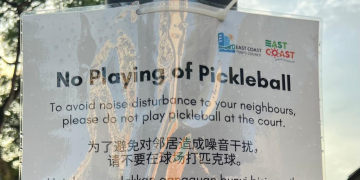Emily remembers vividly the first time she got pregnant. She had been trying to conceive for three months, and like many first-time would-be moms, shared the joyous news with family and close friends when she found out.
11 weeks into her pregnancy, she saw an improvement in her first trimester symptoms — her nausea waned, she was less lethargic and her bouts of vomiting eased. All positive signs as the second trimester approached, she thought. But what she didn’t know was that her baby’s heart had already stopped beating for three weeks.
In a visit to the gynaecologist, a scan showed that her baby did not grow beyond eight weeks in size, with Emily completely unaware that she had miscarried.
“I had what doctors call a missed miscarriage, which means the baby’s heart stopped beating inside the womb but the pregnant woman doesn’t know because she doesn’t experience symptoms of a miscarriage like tummy pain or bleeding,” Emily shared. It also dawned on her that her relief from nausea and vomiting was likely a response from her body that knew it was no longer carrying another beating heart. The news was devastating.
The reality of miscarriages
What Emily didn’t know then was that she would go through the same painful experience a second time. But this time, she kept the news of her pregnancy, as well as miscarriage, to herself. “The emotional trauma from the first miscarriage made me realise I shouldn’t share that I’m expecting so early on as anything can happen during a pregnancy.”
Emily’s fears were not unfounded. A local medical practitioner who goes by Dr M. tells TheHomeGround Asia that people may not be aware that miscarriages can happen at anytime during a pregnancy. A miscarriage that happens in early pregnancy is termed as an early pregnancy loss (EPL), a miscarriage that happens between 13 to 20 weeks gestation is a second trimester pregnancy loss, and a miscarriage that happens beyond 20 weeks gestation is called an intrauterine fetal death or a stillborn. EPL is, in fact, the most common complication in early pregnancy with the probability of an EPL occurring during pregnancy varying from 10% to 30%.
As doctor who has had to deal with numerous women who miscarry, her encounters are nothing short of heartbreaking. “I remember a woman who wanted to get a second opinion from another doctor even though she had all the signs of a miscarriage and her previous doctor’s scan showed that the baby’s heartbeat wasn’t there anymore. She could not accept that her baby was no longer there.
“I have also encountered a lady who wanted to check on her baby’s heartbeat every two weeks because she had a stillborn with her previous pregnancy at 34 weeks gestation and she was worried she might lose her current pregnancy the same way. Giving birth is already a very trying event, what more giving birth to a stillborn baby,” she shares.
Handling grief after pregnancy loss
The mental impact of such a harrowing experience can take a toll on a woman’s mental health. While it varies widely, many women experience psychological distress, anxiety, guilt or even clinical signs of depression after a miscarriage. These can persist for months.
Emily’s own process of recovery was riddled with worry and what-ifs. “In the midst of grieving, I thought a lot about what could have contributed to the miscarriage — questions like, is there something wrong with my womb? Do my husband and I have unknown chromosomal abnormalities that would make us continue to have recurrent miscarriages? Even questions like, should I have done such-and-such activity on this day; maybe if I didn’t, I wouldn’t have had the miscarriages.”
It didn’t help that breaking the news to family the first time around elicited varied responses that added to her feelings of sorrow and guilt. “My mother told me I shouldn’t tire myself out so much with work so that it won’t happen again. My mother-in-law told me that I am weak and maybe I should take some vitamins to make myself stronger. My father and father-in-law were shocked but they didn’t say anything.”
Seeking support in a shared experience
Dr M. shares that patience and empathy are important in helping these women cope with their loss. Emily cites her husband as a pillar of support who “consoled [her] each time [she] broke down in tears mourning the losses”, but she also found that reading forums online where similar women experienced multiple miscarriages of their own reiterated to her that miscarriages can happen through no fault of the woman.
With the topic of miscarriage still considered taboo in most cultures, would normalising such conversations be healing to women who’ve gone through these experiences?
A recent publicised miscarriage involving celebrity Chrissy Tiegen sparked a furore among critics and followers. Hunched over on a hospital bed, the wife of singer John Legend had posted on her Instagram account a photo of herself wrapped loosely in a blanket, hands clasped in a prayer position appearing distraught and in tears. She shares in the post, and in a following piece on Medium, the details of the medical complications that led to the loss of her baby, whom she had begun to call Jack, at just 20 weeks into her pregnancy.
Her openness in sharing intimate photos and details of her ordeal led to harsh criticisms and even abuse and harassment from QAnon theorists. Tiegen acknowledged the discomfort her husband Legend faced when she had asked him to take photos of her vulnerable state but expressed the need to document the moment. She also snapped back at critics saying that the “photos aren’t for anyone but the people who have lived this or are curious enough to wonder what something like this is like.”
The outpour of support for Tiegen has been overwhelming with countless women sharing their own painful experiences, leading to a renewed awareness on the kinds of pregnancy loss that could occur and the growth of a support network for women who may be afraid of speak up about their losses.
Barriers in speaking up
Emily believes the barrier in discussing this topic stems from how “a lot of women feel like they are failures when they experience a miscarriage”. She adds that unwelcome remarks from others can also add to the pain, causing women to refrain from sharing their experiences. A regular insensitive remark she received post-miscarriage include being told by relatives and acquaintances to “catch up on kids after being married for so long”.
The Duchess of Sussex, Meghan Markle who revealed she had a miscarriage in July, wrote about the societal aversion surrounding speaking up on a rather common human phenomenon. She penned in an essay for the New York Times: “Losing a child means carrying an almost unbearable grief, experienced by many but talked about by few. […] Yet despite the staggering commonality of this pain, the conversation remains taboo, riddled with (unwarranted) shame, and perpetuating a cycle of solitary mourning.” She believes that by the courageous efforts of some women to tell their stories of miscarriage, it opens door for others and “gives license for all of us to do the same”.
Tiegen, in urging women to share their experiences, stressed the need for kindness towards these women who are “pouring their hearts out” and those who may chose to keep their ordeals to themselves. While a move to normalise a conversation that is tiptoed around looks to be a step in the right direction, it seems equally as important to allow these affected women to cope in whatever form heals them best — privately or otherwise.
And perhaps as a society, what matters more is our response towards women who are without child; to reserve judgement on what isn’t seen on the surface — the possible months of trying to conceive, the loss of hope after a second miscarriage — and to also extend compassion to those who openly express their grief after a heartbreaking ordeal of losing an unborn child.
Join the conversations on THG’s Facebook and Instagram, and get the latest updates via Telegram.














